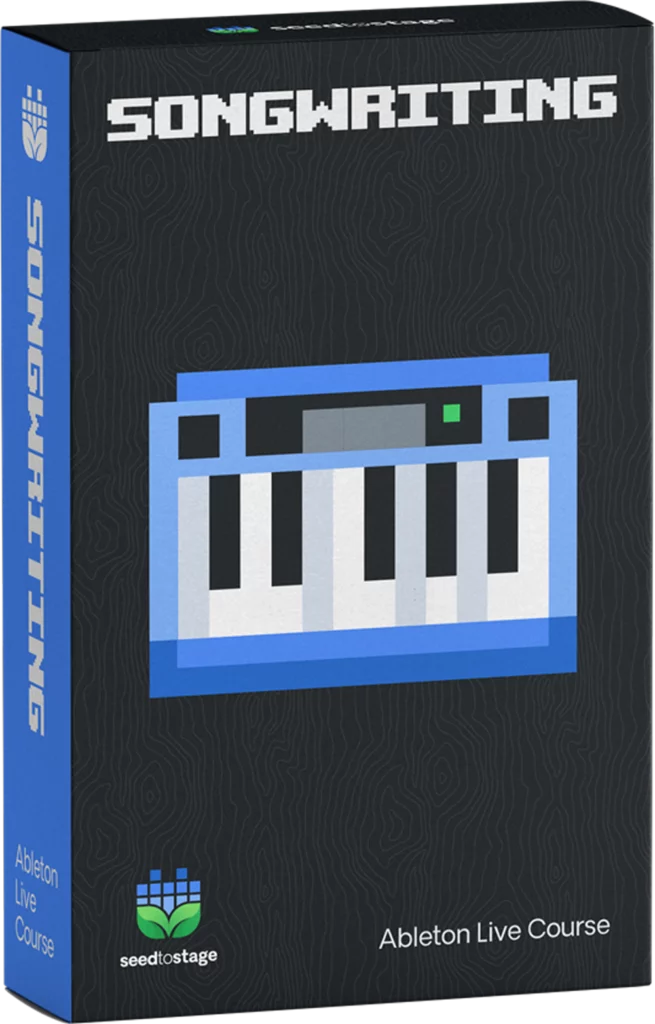Getting 'Lost in the Sauce' of Music Production
When making music in any DAW, we're presented with so many options that it becomes easy to get caught in a cycle of tweaking parameters without making meaningful progress toward finishing tracks. Or, 'lost in the sauce' as we like to call it. At any moment there are so many directions you could go with the sounds and song structure that you're creating that it can be easy to fall into a loop of this for hours at a time. All of a sudden, it's 4 am, and you're not any closer to a finished track than when you started.
Now, productivity is a massive subject, and there are so many ways you could approach being more efficient at music production and finishing tracks. But in today's lesson, we're going to focus on one thing that nearly everyone struggles with at some point: commitment.
So what do we mean by audio commitment? It's simple: if you have a part that you've created and you're relatively happy with how it sounds, record it or resample it to audio and move on to the next thing. It truly is that simple. If we have any hope of turning our loops into a finished track, it means that we eventually must decide, "Okay, that's good enough," and bounce that channel down to audio.
Commitment and Finishing Tracks
"Commitment" in Ableton Live can take many different forms. It doesn't necessarily mean having zero effect chains or no MIDI VSTs in your set. The important part is that the amount of options we have in front of us is manageable and that the options that we leave open are meaningful ones that serve the finished track.
There's a reason why an ever-popular YouTube search for musicians is "How do I actually finish my track?" There are so many producers out there who regularly face this issue. The big problem with having this many options always at our fingertips is that we become susceptible to analysis paralysis. With so many potential directions to go becomes easy to fall into the trap of forever experimenting and tweaking.
Modern DAWs like Ableton Live allow us to approach music production from a variety of different methods. One of these is the ability to make MIDI clips with all your notes and chords, then send them through giant chains of instruments and effects where every parameter is tweakable or changeable at any time. Back in the day, before computer music production, musicians wrote songs and practiced them thoroughly before going into the studio. This made it possible for musicians to sit down once and lay down the part without having to go back and re-record it repeatedly, thus saving money.
Modern Computers Can Enable Bad Habits
The difference in these modern times is the number of options you can leave on the table if you have MIDI tracks with multiple MIDI instruments and giant effect chains. Modern production software allows us to change any aspect of any sound at any time. This is a powerful thing, and we are certainly blessed to be living in the best time in history to be making music. However, leaving every option on the table can also be a major pitfall.
With the advent of newer, more powerful technology, computer processing, and resource challenges are slowly starting to become less of an issue in audio production. However, in a certain sense, this only further adds to the problem by enabling producers to pile up many tracks filled with complex chains that give us even more options to get lost in.

Clearing the Way to Efficient Workflow
While there are many ways that we could discuss how to streamline your creative process and improve output and productivity, this tutorial is going to hopefully give you a concrete and helpful tip that you can take with you. In simple terms: commitment means making the conscious choice to commit sounds that you create early and often instead of leaving too many options on the table.
This, we promise, will change your musical life for the better. This simple lesson can be a surprisingly difficult one to internalize. It's easy to fall into a pattern of thinking about elements you might want to change later. "If I commit this track to audio, what if I get further into the production and I want to change what I've done and can't?"
On the surface level, this is a really strong argument. But there are a few good reasons why so many professional producers commit their MIDI and effect chains to audio early and often. For this lesson, we're going to focus on four major reasons why it's essential to commit to sounds early and often - especially if you have a difficult time finishing tracks.
Reason 1: Variety
If you choose to start committing your tracks to audio, what you'll also find is that you'll have more time to create different versions of the same sound. Instead of having a disorganized mess of automated parameters that you later have to sift through; you can tweak a manageable amount of parameters, commit the output to audio, and then redo that same part a different way. When working with audio it's very simple to create many 'takes' of the same section of music and recombine the best parts of each into using the process of comping.
Variety is the spice of life, and if you've ever heard music that's highly edited, chances are that instead of the artist using absurdly long chains of effects in hundreds of MIDI tracks, it's more likely they were using one track and resampling little snippets of audio, then sequencing those clips throughout their tune. That brings me to number two.
Reason 2: Editing Speed
This may seem obvious, but until you experience the difference that commitment makes, it's hard to overstate how much more quickly it is possible to work when our primary focus is audio. Speed isn't everything, and it's easy to feel somewhat sentimental about those long nights spent honing in on the particulars of sound design. But it's important to remember that inspiration is a fickle beast, one that can leave just as fast as it arrives.
If you've ever had an idea you're excited about, that's when speed and efficiency are extremely important. Inspiration is like a good breeze when you're sailing a boat. You want to catch the wind and ride it as far as it can get you. If you get stuck on one sound for too long, that ship could have sailed, and you're stuck in dead water. Avoiding this pitfall means not just being able to effectively capture your ideas but also understanding how to consistently create the sounds you're aiming for.
Reason 3: CPU Resources
Even with modern computers, if you have hundreds of tracks with long effect chains and you're using modern mixing tactics like oversampling, you'll always be fighting the ceiling of your computer's processing power.
Sooner or later, you'll have to increase the buffer size to stay within the limits, and eventually, you'll find yourself either freezing tracks or being forced to make commitment decisions in the middle of your workflow. Often, this can come at the worst times, right when you're in the middle of a work session. Instead, if you're committing to audio early and often, you can manage your CPU load easily and gracefully.
But even so, if you have millions of tracks running all at the same time with loads of inter-track dependencies and so on, you can still run into the fourth reason you should commit to audio.
Reason 4: Glitches, Errors, and Crashes
No one has ever used a DAW without glitches and the occasional dreaded crash. Thankfully, Ableton Live's undo history system and set recovery are outstanding, and crashes that result in a loss of progress are very rare.
However, crashes are much less common in sets that primarily use audio playback over expansive MIDI instruments and effect chains. Crashes are not generally a symptom of an underperforming processor. More often crashes are the results of software bugs or different elements of an effect chain interacting in unexpected ways.
The best way to avoid bugs is to keep your software up to date. But remember that we can create fewer opportunities for odd fringe issues to occur in your system by committing to audio early and often and relying less on the interdependence of gigantic effect chains.
Know What to Leave Editable
Now, when we say commit to audio early and often, that doesn't mean every single track in your set. The important thing is to achieve a healthy balance between the tracks that you commit to audio and tracks that remain MIDI or with long effect chains.
It's important to think objectively about the tracks that should be left open for creative flexibility, and which tracks should be minimized down to audio tracks. Something like a static, unchanging kick drum relying on a long effect chain defining its tone would be beneficial to reduce down to an audio track. Whereas something like an expressive, morphing bass sound might be better left as MIDI so that its parameters can remain flexible for sound design or live performance.
In the video for this lesson, Anthony compares two sets: The first one has been a work in progress for over four years and shows a great example of how complex a big track reliant on lots of MIDI channels can become. The second set more closely follows the approach that we discuss in this lesson, committing to audio sooner rather than later. It comes as no surprise which of these approaches to making music results in a track that is easier to return to and continue working on.
If this audio-centric workflow is different from the way that you normally work, we challenge you to simply try to make a tune where over 75% of your tracks are committed to audio. You may be pleasantly surprised by the efficiency and joy that holy matrimony to your audio can bring to your music. Thanks for reading!
Want to learn more about effective workflow and creating complete tracks in Ableton live? Check out our "Songwriting and Composition in Ableton Live" course!

